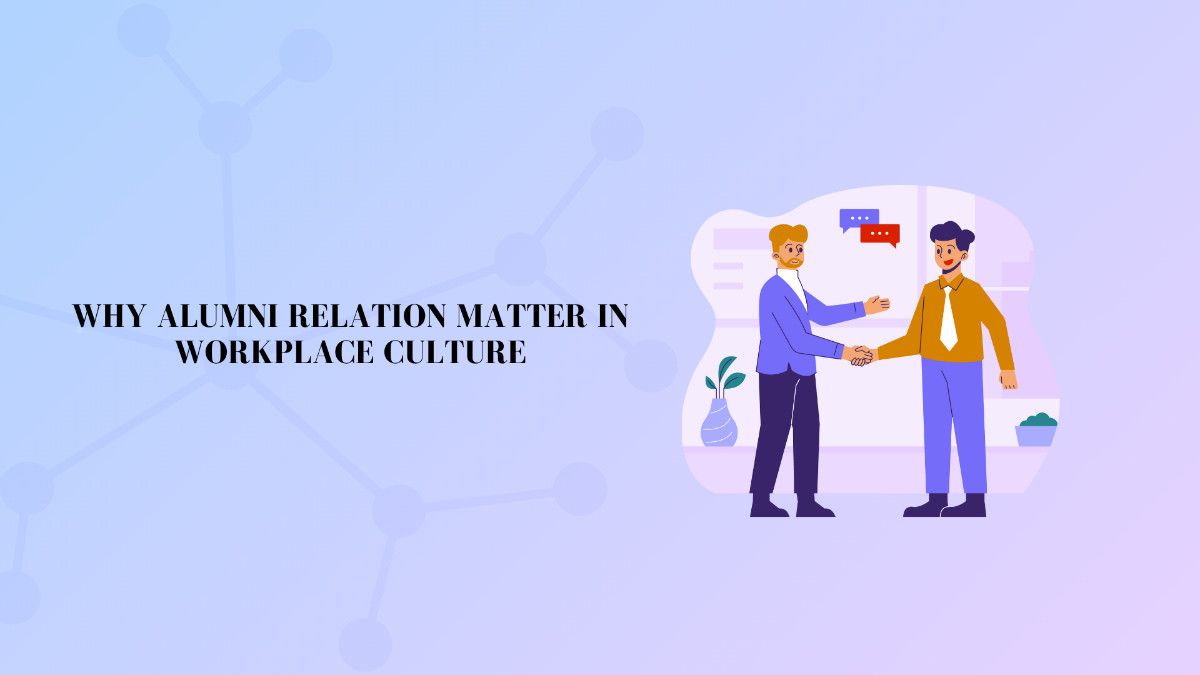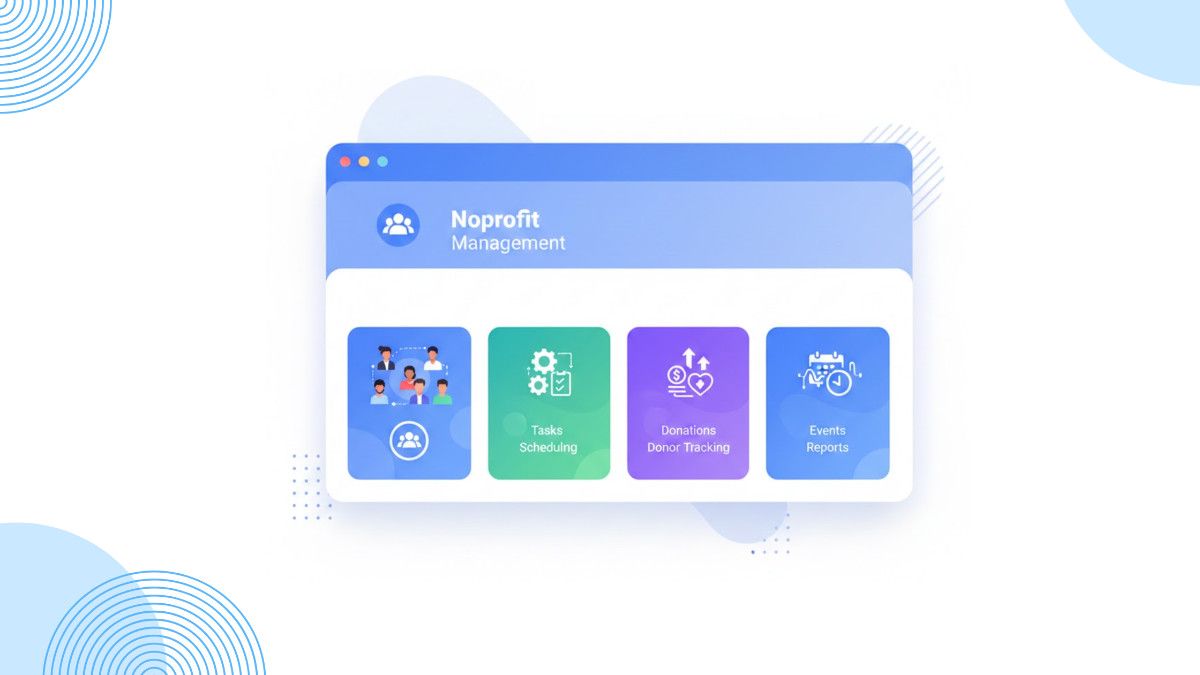The Importance of Alumni Relations in Shaping Workplace Culture
Discover the importance of alumni relations in building workplace culture and long-term employee engagement.

In most organizations, workplace culture and alumni relations have long been considered two entirely distinct concepts. One is made up of employees—how content they are, retaining them, and engaging them—whereas the other is all about external people—such as attracting talent and building external relationships. The reality is different: alumni relations are embedded in workplace culture. They are part of it.
Company culture reflects the way a company cares for its people during their time working there and beyond. The best companies now realize that good culture includes the whole period an employee is with the company: as a job candidate, as an employee, and as an ex-employee.
Let’s break down how culture is relevant to each step—and why alumni relations matter so much.
What is Alumni Relation?
Alumni relations in businesses are the systematic ways in which a business is in touch with its alumni. These may include alumni networks, events, newsletters, mentorship, or the possibility of working together. They are not out of courtesy; they fulfill important purposes: they retain the knowledge of the company within the company, raise the company’s image, and create possibilities for rehire and referrals.
The Role of Culture Along the Employee Journey
Culture isn’t a static idea—it’s a living experience that evolves throughout the employee lifecycle. From the moment someone applies to a role to long after they leave the organization, culture shapes how they engage, grow, and eventually stay connected as alumni. Understanding this full journey allows organizations to build relationships that last well beyond the workplace.
1. Culture begins with hiring people.
A candidate starts to feel an organization’s culture even before they step foot in the door for the first time. From the tone of the job posting to the way interviews are handled, every interaction shows how the company regards the people.
A good hiring culture that is respectful and engaging enables firms to hire quality employees. Candidates will be more likely to accept job offers and recommend others when they are respected and engaged throughout the hiring process, even if they don’t accept the job.
A poor candidate experience damages the employer brand. The study indicates that a majority of job seekers who have a negative experience will warn others by leaving feedback through reviews or by discussing it. That’s out there in the public and can influence future hiring decisions.
2. Culture in Action: The Employee Experience
Once in the building, culture impacts every day in recruiting, developing, and retaining employees. High-performing culture organizations invest in ongoing learning, career growth, open communication, and recognition.
When people are engaged, they are more productive and more likely to remain at the job longer. According to Gallup research, organizations with highly engaged people perform significantly better and experience lower turnover. But to sustain this engagement, the company culture has to be deliberate, consistent, and enduring.
And lasting means more than tenure.
Why Alumni Relation are a Natural Fit with Culture
Once employees depart, they are still a part of your narrative. How long they stay with your company determines what they tell others about it. That is why onboarding and the exit process both rank as high as reconnecting with previous employees.
That is why alumni relation matter:
1. They Mirror Your Organizational Values
The way that you treat former employees is a values reflection. A firm that has a good relationship with its former employees is a reflection of respect, long-term focus, and empathy—crucial components of a healthy culture.
2. They Establish Brand Credibility
Graduates are likely to act as informal ambassadors. They can share their experiences online, support new talent, or talk about your culture with potential customers and partners. Former employees who enjoyed a positive experience are likely to recommend your company.
On the other hand, disengaged or abused alumni can post negative comments or dissuade others from applying—directly affecting your reputation within a competitive job market.
3. They Develop Robust Talent Pipelines
Alumni networks are the best source of talent. “Boomerang employees”—past employees returning—have a familiarization with your systems, culture, and expectations. Bringing them back on board can save time and money.
Also, former students often recommend very qualified people who fit well with the culture, making your workforce even stronger.
4. They Offer Continuous Business Value
Most of them transition into leadership positions at other firms. These individuals may turn into partners, customers, or co-operators. Keeping in contact with them assists in the development of new business opportunities, collaborative projects, or knowledge sharing within the sector.
Becoming a Member of the Workplace Culture
To truly integrate alumni relations into your workplace culture, it must go beyond being just an HR responsibility. It should be a strategic, visible, and continuous initiative embedded in the organization’s values. Here’s how businesses can start:
- Leadership Buy-In: Leaders should actively support alumni initiatives, signaling their importance to the broader organization.
- Cross-Department Involvement: Encourage collaboration across departments—HR, marketing, L&D, and leadership—to ensure alumni relations are deeply rooted.
- Dedicated Programs: Establish formal alumni programs with consistent communication, engagement strategies, and clear objectives aligned with business goals.
- Cultural Reinforcement: Celebrate alumni success internally and externally, reinforcing a culture of lifelong connection and mutual growth.
Conclusion:
Workplace culture isn’t something left at the office door when an employee exit . Instead, what we do once they’re gone is just as revealing. Alumni relations aren’t a bolt-on HR program—they’re an essential manifestation of the way an organization engages with people, creates community, and extends its influence.
By considering alumni as long-term stakeholders and not short-term resources, corporations establish webs of trust, cooperation, and shared value. That is the essence of contemporary, sustainable workplace culture.
Let’s discuss the idea
Join hundreds of companies transforming their corporate communities with Almashines






